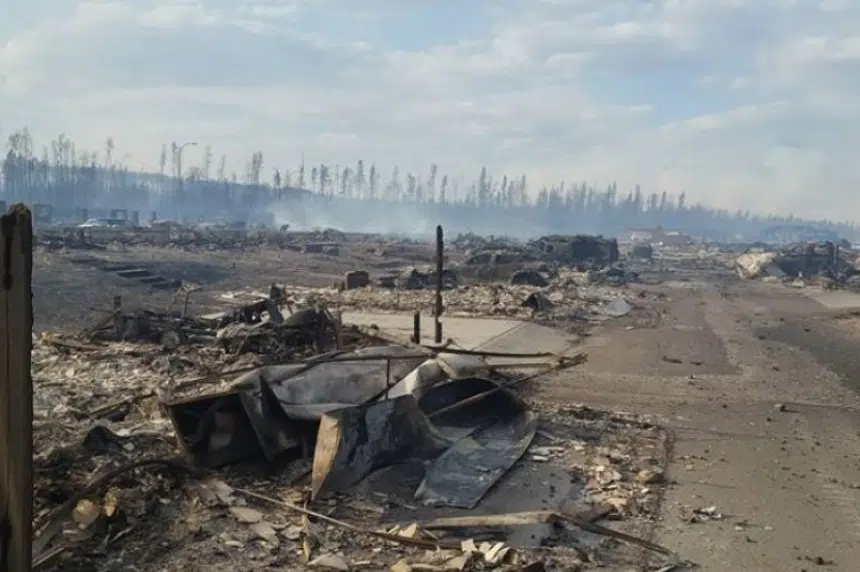Burning buildings, people running for their lives and chaos – Shane Bair’s descriptions are that of a war-ravaged city, but he’s only one province away as one of many firefighters working to battle the uncontrolled blaze consuming Fort McMurray.
Bair is the platoon chief for Lac La Biche county fire and rescue. He makes his home in Alberta, but is a band member of the Muskoday First Nation outside of Prince Albert.
Bair described his time in the northern Alberta city as ‘heartbreaking’. Each day, he’s watched people lose everything they have. But the wildfires take swiftly and indiscriminately; he witnessed a six-storey apartment building burn to the ground in 15 minutes.
“It’s like a war zone. Almost every community you go into … it’s complete devastation, all you see is cement foundations and burnt out cars and campers,” Bair said, calling the images “surreal”.
“In one community … there’s 12 homes and the legion. That’s it,” he said.
He has been in Fort McMurray since Tuesday, May 3 fighting the blaze nearly around the clock. He woke up Friday at 3 p.m. after working a nearly 24-hour shift the day before. Before that was a nine-hour shift, two hours of sleep, then back to work again.
“The first night we were here, we had to sleep on a cement floor. All the cots were used. There were thin little fleece blankets, no pillows,” Bair said.
The hard work caught up to him, the firefighter explained between coughs, apologizing saying “there’s been a lot of smoke here the last couple of days.”
Despite the struggles, his mission in the fire zone is one of prevention. Bair and his crew make any available attempts to stop the fire from spreading which includes dousing buildings with water.
The first day Bair arrived he remembered the riverbanks “aglow” with flames.
“Everywhere you look there’s just fire,” he said. “Whole streets of houses are going up at once.”
Bair said the inferno itself is responding to firefighters’ efforts as if it were a battle, adding the flames’ ability to bounce back looks as if the blaze was taunting them.
Bair said most the hydrants in the area have no pressure, adding to the already trying circumstances of his job. There is simply too much strain on the system, especially in higher elevation neighbourhoods where water pressure might be poor to begin with.
“We’re shuttling water with tanker trucks,” he said estimating the water is coming from six kilometres away.
While his job is difficult, the gravity of the situation is not lost on Bair. The “structures” he puts out are not merely cement and timber.
“In the back of your mind you know exactly what’s going on and you’re trying your best. It’s disappointing, demoralizing and heartbreaking that you can’t do more. You’re watching these apartment buildings, hotels, businesses, homes just burst into flames,” he said.
Bair asked anyone with the means to give to evacuees any way they could.
The wildfires in and around Fort McMurray have overtaken 100,000 hectares of land; roughly seven times the size of Regina, Sask. Nearly 90,000 people have been forced from their homes after a mandatory evacuation was ordered earlier this week.







